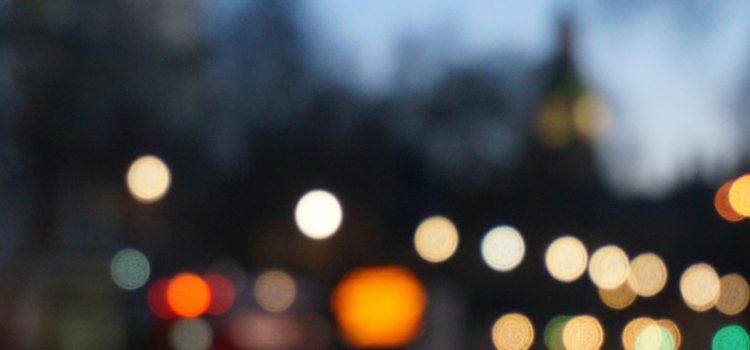
Quincey3 Html 6754626952582718051
Confessions of an English Opium Eater
To the reader:
- “I here present you, courteous reader, with the record of a remarkable period in my life: according to my application of it, I trust that it will prove, not merely an interesting record, but, in a considerable degree, useful and instructive”, p.1
- “Nothing, indeed, is more revolting to English feelings, than the spectacle of a human being obtruding on our notice his moral ulcers or scars”, p.1
- “spontaneous and extra-judicial confessions”, p.1
- “my self-accusation does not amount to a confession of guilt”, p.2
- “I may affirm, that my life has been, on the whole, the life of a philosopher”, p.2
- “[I] have untwisted, almost to its final links, the accursed chain which fettered me”, p.2
- “I do not readily believe that any man, having once tasted the divine luxuries of opium, will afterwards descend to the gross and mortal enjoyments of alcohol”, p.3-4
Preliminary Confessions:
- “introductory narrative of the youthful adventures which laid the foundation of the writer’s habit of opium-eating in after-life”, p.4“interfere with that degree of sympathy which is necessary in any case to an author’s purposes”, p.4
- “It was not for the purpose of creating pleasure, but of mitigating pain in the severest degree, that I first began to use opium as an article of daily diet.”, p.6
- “As the youthful sufferings, which first produced this derangement of the stomach, were interesting in themselves, and in the circumstances that attended them, I shall here briefly retrace them”, p.6
- “It is a bad thing for a boy to be, and to know himself, far beyond his tutors, whether in knowledge or in power of mind”, p.7
- “Money being what I chiefly wanted, I wrote to a woman of high rank”, p.8
- “we never do anything consciously for the last time […] without sadness of heart”, p.8
- “The morning came which was to launch me into the world, and from which my whole succeeding life has, in many important points, taken its colouring”, p.9
- “I, who was framed for love and gentle affections, had lost my gaiety and happiness”, p.9
- “It had been my intention originally to proceed to ,Westmorland, both from the love I bore to that county, and on other personal accounts. Accident, however, gave a different direction to my wanderings”, p.11
- “An accident, however, in which, perhaps, no offence was designed, drove me out to wander again”, p.12 (bishop)
- “as if my scholarship were sufficient evidence, that I was of “gentle blood””, p.15
- “I believe I might have stayed with them up to this time, if their power had corresponded with their wishes”, p.15
- “Soon after this, I contrived, by means which I must omit for want of room, to transfer myself to London. And now began the latter and fiercer stage of my long-sufferings”, p.16
- “my sleep was never more than what is called dog-sleep”, p.17
- “For myself, I never fail to visit it when business draws me to London”, p.19
- “For a philosopher should not see with the eyes of the poor limitary creature calling himself a man of the world, and filled with narrow and self-regarding prejudices of birth and education, but should look upon himself as a Catholic creature, and as standing in an equal relation to high and low”, p.20
- “yet no! Let me not class thee, Oh noble-minded Ann -, with that order of women”, p.21
- “poor houseless wanderers”, p.21
- “instantaneous power of restoration”, p.22 (Ann’s glass of wine)
- “it had never once occurred to me to think of literary labours as a source of profit”, p.24
- “was I that person?”, p.25 (Jew episode)
- “for the rest of my journey he behaved to me with the gentleness of a woman, so that, at length, I almost lay in his arms”, p.29
- “Here let me stop for a moment to check my reader from any erroneous conclusions”, p.31
- “in my judgement, a station which raises man too eminently above the level of his fellow-creatures is not the most favourable to moral, or to intellectual qualities”, p.31
- “according to our agreement, I sought her daily, and waited for her every night, so long as I staid in London, at the corner of Titchfield-street”, p.33
- “If she lived, doubtless we must have been sometimes in search of each other, at the very same moment, through the mighty labyrinths of London; perhaps, even within a few feet of each other”, p.34
Part 2:
- “the time was come at last that I no more should pace in anguish thy never-ending terraces”, p.34
- “that is the road to the North, and therefore to –“, p.35
- “for thou, beloved M., dear companion of my later years, thou wast my Electra!”, p.36
The Pleasures of Opium:
- “what a revulsion!”, p.39
- “That my pains had vanished was now a trifle in my eyes: -this negative effect was swallowed up in the immensity of those positive effects which had opened before me”, p.39
- “Here was a panacea […] happiness might now be bought for a penny, and carried in the waiscoat pocket”, p.39
- “if you eat a great deal of it, most probably you must –do what is particularly disagreeable to any man of regular habits, viz. die.”, p.40
- “This is the doctrine of the true church on the subject of opium: of which church I acknowledge myself to be the only member –the alpha and the omega”, p.42
- “the elevation of spirits produced by opium is necessarily followed by a proportionate depression, and that the natural and even immediate consequences of opium is torpor and stagnation, animal and mental”, p.43
- “opium is classed under the head of narcotics”, p.43
- “the reader may judge of the degree in which opium is likely to stupify the faculties of an Englishman”, p.44
- “I used to fix beforehand how often, within a given time, and when, I would commit a debauch of opium”, p.44
- “I honour the Barbarians too much by supposing them capable of any pleasures approaching to the intellectual ones of an Englishman”, p.45
- “And sometimes in my attempts to steer homewards, upon nautical principles, by fixing my eye on the pole-star, and seeking ambitiously for a north-west passage, instead of circumnavigating all the capes and head-lands I had doubled in my outward voyage, I came suddenly upon such knotty problems of alleys, such enigmatical entries, and such sphinx’s riddles of streets without thoroughfares, as must, I conceive, baffle the audacity of porters, and confound the intellects of hackney-coachmen.”, p.47
- “opium does not, of necessity, produce inactivity or torpor”, p.48“he naturally seeks solitude and silence, as indispensable conditions of those trances, or profoundest reveries, which are the crown and consummation of what opium can do for human nature”, p.48
- “Oh! just, subtle and mighty opium! that to the hearts of poor and rich alike […] bringest an assuaging balm”, p.49
- “thou hast the keys of Paradise, oh, just, subtle, and mighty opium!”, p.49
Introductions to the pains of opium:
- “for all my readers must be indulgent ones, or else, I fear, I shall shock them too much to count on their courtesy”, p.50
- “now let me request you to move onwards, for about eight years; that is to say, from 1804 […] to 1812”, p.50
- “eight years’ practice even, with the single precaution of allowing sufficient intervals between every indulgence, has not been sufficient to make opium necessary to me as an article of daily diet”, p.52
- “Move on, if you please, reader, to 1813”, p.52
- “I hanker too much after a state of happiness, both for myself and others”, p.52
- “Whether desperate or not, however, the issue of the struggle in 1813 was what I have mentioned; and from this date, the reader is to consider me as a regular and confirmed opium-eater”, p.54
- “rise up, if you please, and walk forward about three years more. Now draw up the curtain, and you shall see me in a new character”, p.54
- “there was a sort of demon below”, p.56
- “To him, as an Orientalist, I concluded that opium must be familiar”, p.57
- “I had given him the opium in compassion for his solitary life”, p.57
- “But I, who have taken happiness, both in a solid and a liquid shape, both boiled and unboiled, both East India and Turkey”, p.58
- “I will here lay down an analysis of happiness”, p.58
- “I admit that, naturally, I ought to occupy the foreground of the picture; that being the hero of the piece, or (if you choose) the criminal at the bar, my body should be had into court”, p.61
The pains of opium:
- “For several reasons, I have not been able to compose the notes for this part of my narrative into any regular and connected shape”, p.62
- “I place myself at a distance of fifteen or twenty years ahead of this time, and suppose myself writing to those who will be interested about me hereafter; and wishing to have some record of a time”, p.62
- “down to a certain point it can be reduced with ease and even pleasure, but that, after that point, further reduction causes intense suffering”, p.63
- “For two years I believe I read no book but one”, p.64
- “Wonder and curiosity were emotions that had long been dead in me”, p.65
- “I have thus described and illustrated my intellectual torpor, in terms that apply, more or less, to every part of the four years during which I was under the Circean spells of opium”, p.66
- “The sense of space, and in the end, the sense of time, were powerfully affected”, p.68
- “Of this at least, I feel assured, that there is no such thing as forgetting possible to the mind”, p.69
- “I shall now cite a case illustrative of the first fact; and shall then cite any others that I remember, either in their chronological order, or any other that may give them more effect as pictures to the reader”, p.69
- “The Malay has been a fearful enemy for months. I have been every night, through his means, transported into Asiatic scenes”, p.72
- “if I were compelled to forego England, and to live in China, among Chinese manners and modes of life and scenery, I should go mad”, p.73
- “I am terrified by the modes of life, by the manners, and the barrier of utter abhorrence, and want of sympathy […] I could sooner live with lunatics, or brute animals”, p.73
- “I was the idol, I was the priest; I was worshipped, I was sacrificed”, p.74
- “Perhaps this cause, and a slight incident which I omit, might have been the immediate occasions of the following dream”, p.75
- “But I am now called to wind up a narrative which has already extended to an unreasonable length”, p.77
- “Not the opium-eater, but the opium, is the true hero of the tale”, p.78
- “I saw that I must die if I continued the opium: I determined, therefore, if that should be required, to die in throwing it off”, p.78
- “I triumphed: but think not, reader, that therefore my sufferings were ended; nor think of me as one sitting in a dejected state”, p.79
- “The moral of the narrative is addressed to the opium-eater; and therefore, of necessity, limited in its application”, p.79
Dernière mise à jour: le 24.01.2005 16:03

